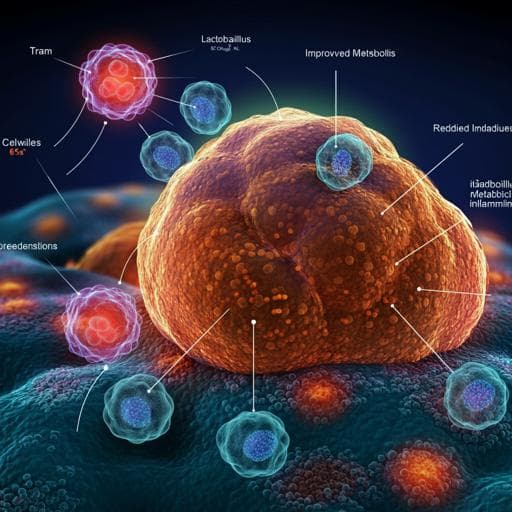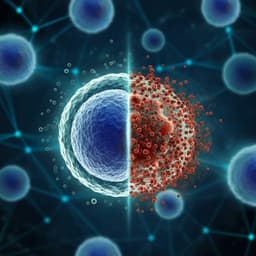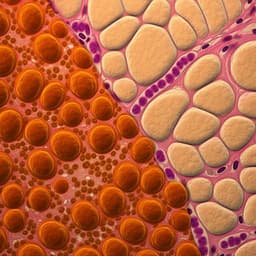
Medicine and Health
Lactobacillus fermentum LM1016 Ameliorates Diet-Induced Obesity by Modulating Bile Acid Signaling and Adipose Tissue Inflammation
Y. Y, K. G, et al.
Discover how Lactobacillus fermentum LM1016 could be the game-changer in combating diet-induced obesity in mice. Researchers Yoon Y, Kim G, Park J-h, Nam M, Jeong M, Fong S, and Park H demonstrated its ability to reduce body weight, improve glucose tolerance, and lower key metabolic markers. This study unveils intriguing mechanisms that could pave the way for innovative weight management strategies.
Related Publications
Explore these studies to deepen your understanding of the subject.







